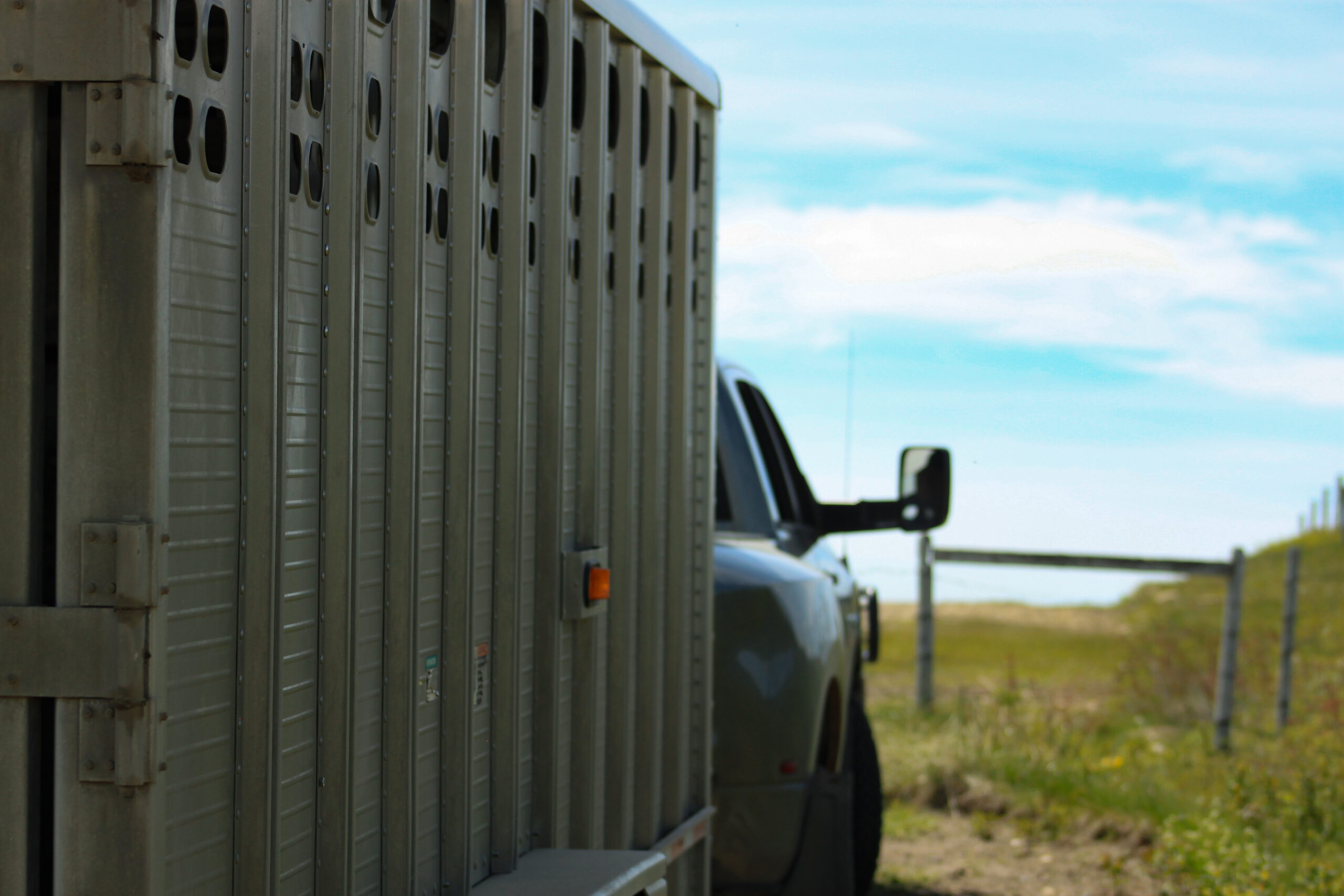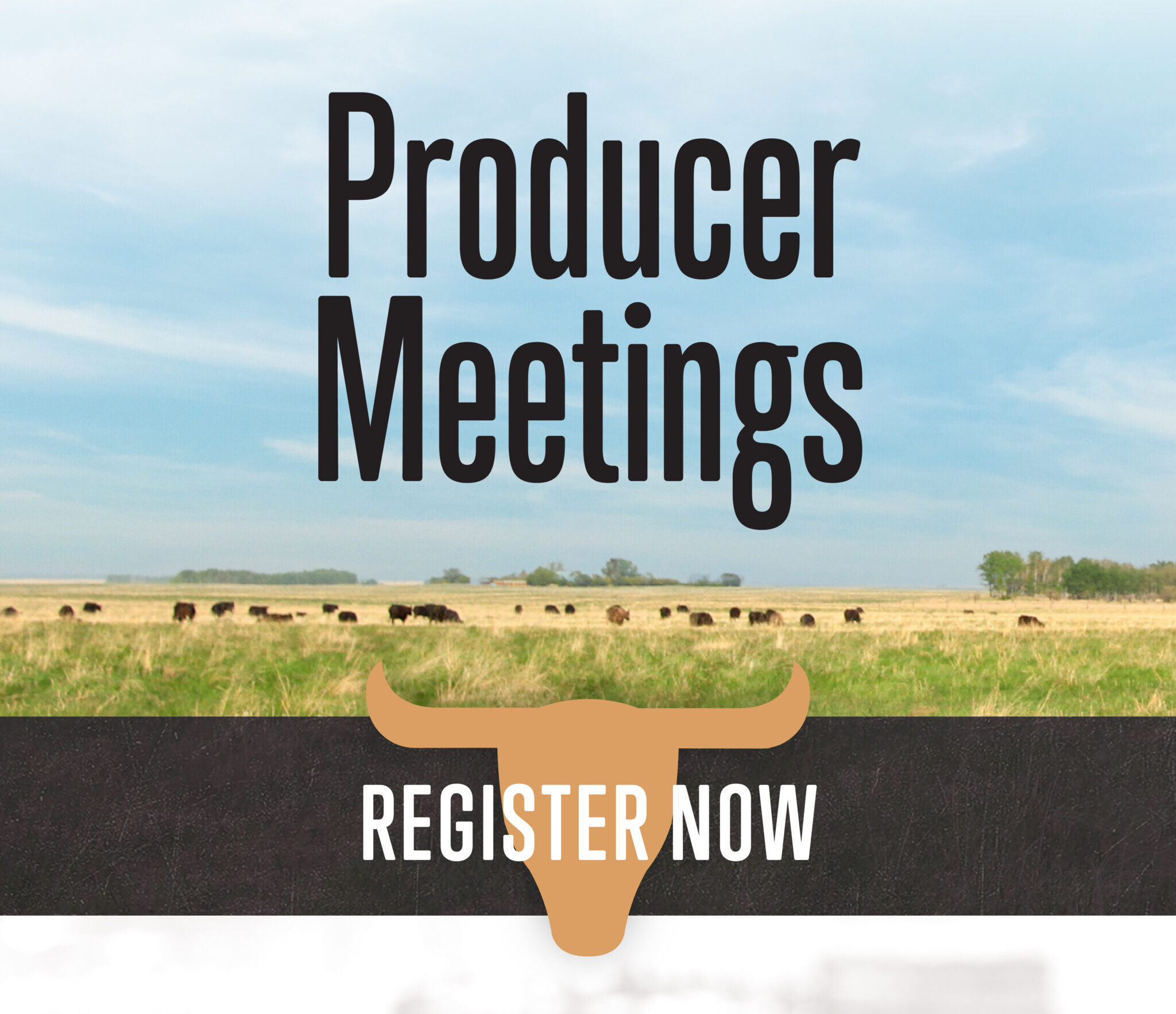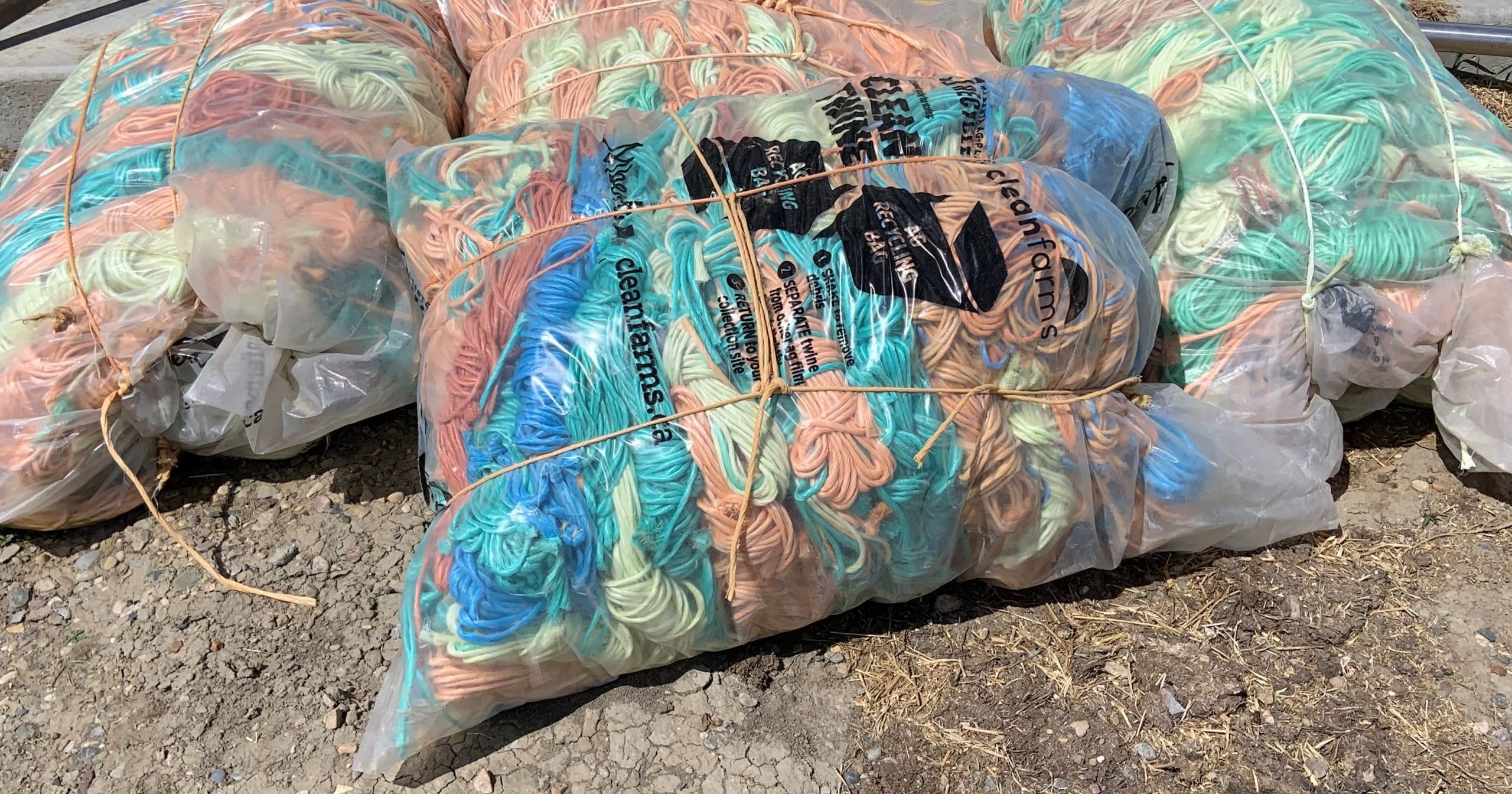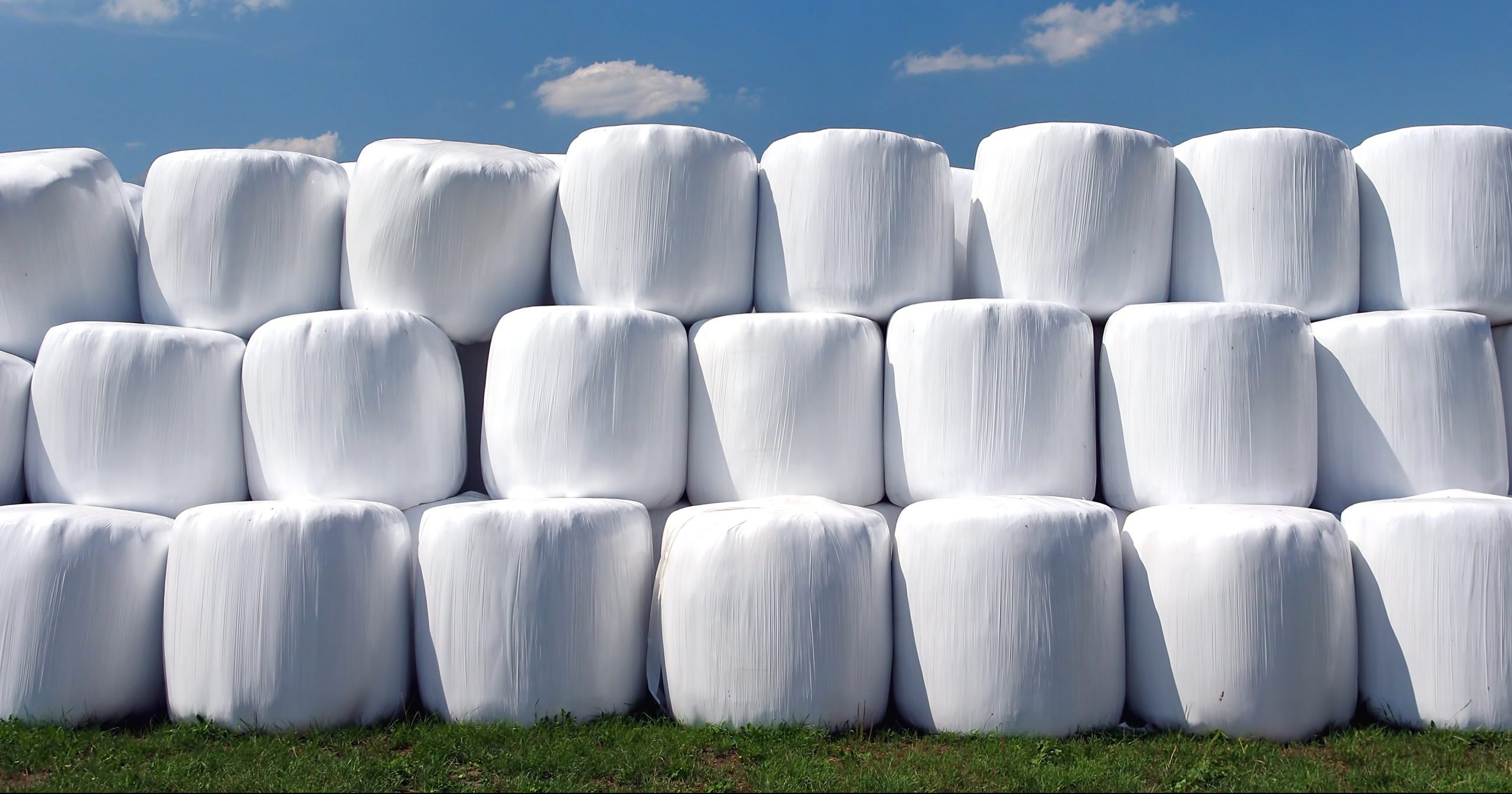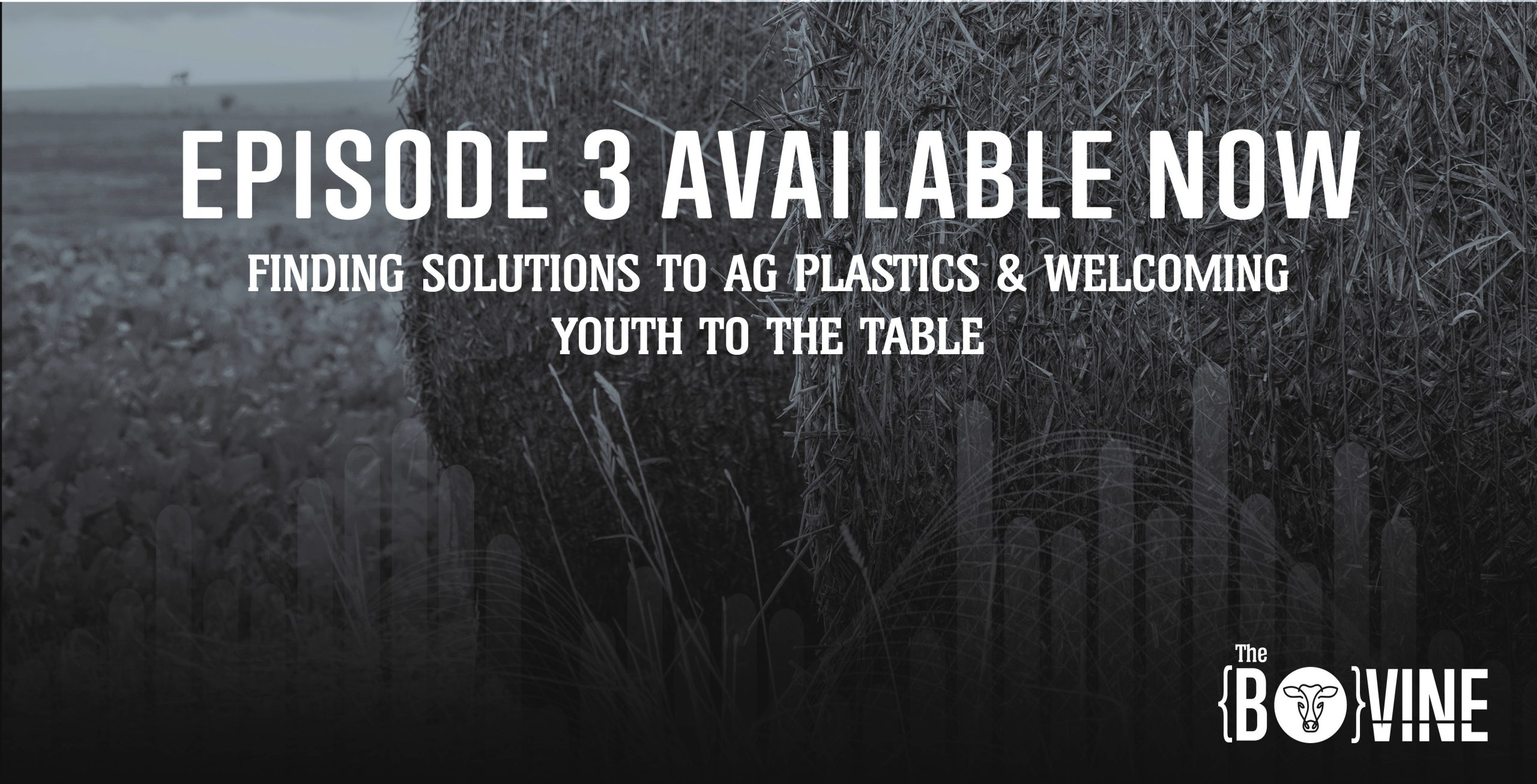AB Direct - Steers
Rail: 510.00-515.50 FOB feedlot (last week)
AB Direct - Heifers
Rail: 510.00-515.50 FOB feedlot (last week)
US Trade- Steers
Rail: 378.00 (NE, IA) last week
US Trade - Heifers
Rail: 378.00 (NE, IA) last week
Canadian Dollar
0.42
Government of Alberta seeking input on agricultural plastics management
The Government of Alberta is gathering input on the potential inclusion of agricultural plastics in a provincial regulatory framework. The initiative, led by Alberta Environment and Protected Areas alongside Alberta Agriculture and Irrigation, seeks feedback on: Since 2019, Alberta Agriculture and irrigation has funded the Alberta Ag-Plastic. Recycle It! pilot program for grain bags and…
What are you doing with your used twine and plastic?
Plastics are integral to most of our businesses, whether you are wrapping up bales or covering your silage pit. They are cheap, convenient, and resilient, which makes them useful but also difficult to get rid of. In the past, the most common practice for dealing with used ag plastics was to burn it – a…
Alberta grain bag and baler twine pilot sees extension
The ‘Alberta Ag Plastic. Recycle it!’ pilot, originally slated to wrap up in April will now continue until at least the end of August 2023. “Farmers are dedicated stewards of our lands, and this program makes it easier for them to recycle commonly-used items like grain bags and baler twine,” said Minister of Agriculture, Forestry and Rural…
Twine – it’s one of the easiest ag plastics to recycle. Really!
Of all the agricultural plastics on prairie farms, baler twine is one of the easiest to overlook when it comes to a commitment to recycle. Unlike grain bags, which when empty, are a massive amount of plastic laying in the field, baler twine accumulates in smaller bunches, seemingly innocuous, until they start to take over…
The Bovine: Finding solutions to ag plastics and welcoming youth to the table
This episode of The Bovine focuses on two topics relevant to the beef industry — youth involvement in the industry and managing agricultural plastics. For the first segment, host Debra Murphy talks to returning Finance Chair, Brodie Haugan, about his experience as a young delegate. Haugan then takes the host chair to introduce past delegate…
Alberta farmers getting on board with grain bag recycling pilot
Farmers universally value tools that give them options when it comes to making decisions about crop production. For example, some prairie farmers choose to use grain bags if a harvest has been abundant and extra storage is needed or bin storage is not available close to where the grain is harvested. In the past decade,…
What We’re Reading | Bale net wrap, twine present health hazard for cows
By Heather Smith Thomas Producers may never realize they have a problem unless a necropsy reveals net wrap or baling twine inside the animal Use of net wrap on hay and straw bales carries risks to cattle. Dr. John Campbell, professor of large animal clinical sciences at the Western College of Veterinary Medicine, says some…
Managing ag plastics long-term — can product suppliers play a bigger role?
In Canada and around the world, certain industry sectors take responsibility for managing their products and packaging when consumers/users are finished with them (typically called at ‘end of life’) so the resources can be recovered and reinvested in the economy. In these cases, a variety of market forces encourage these companies, called ‘producers’, that supply…
Can the ag sector achieve zero plastic waste on the farm?
Cleanfarms and the Alberta Agricultural Plastics Recycling Group (APRG) are publishing a series of information articles for Alberta farmers to develop a shared understanding of the importance of used agricultural plastics resource management. Modern farming utilizes technologies and innovative products that can help farmers operate efficiently with a goal of higher productivity yields in both…



